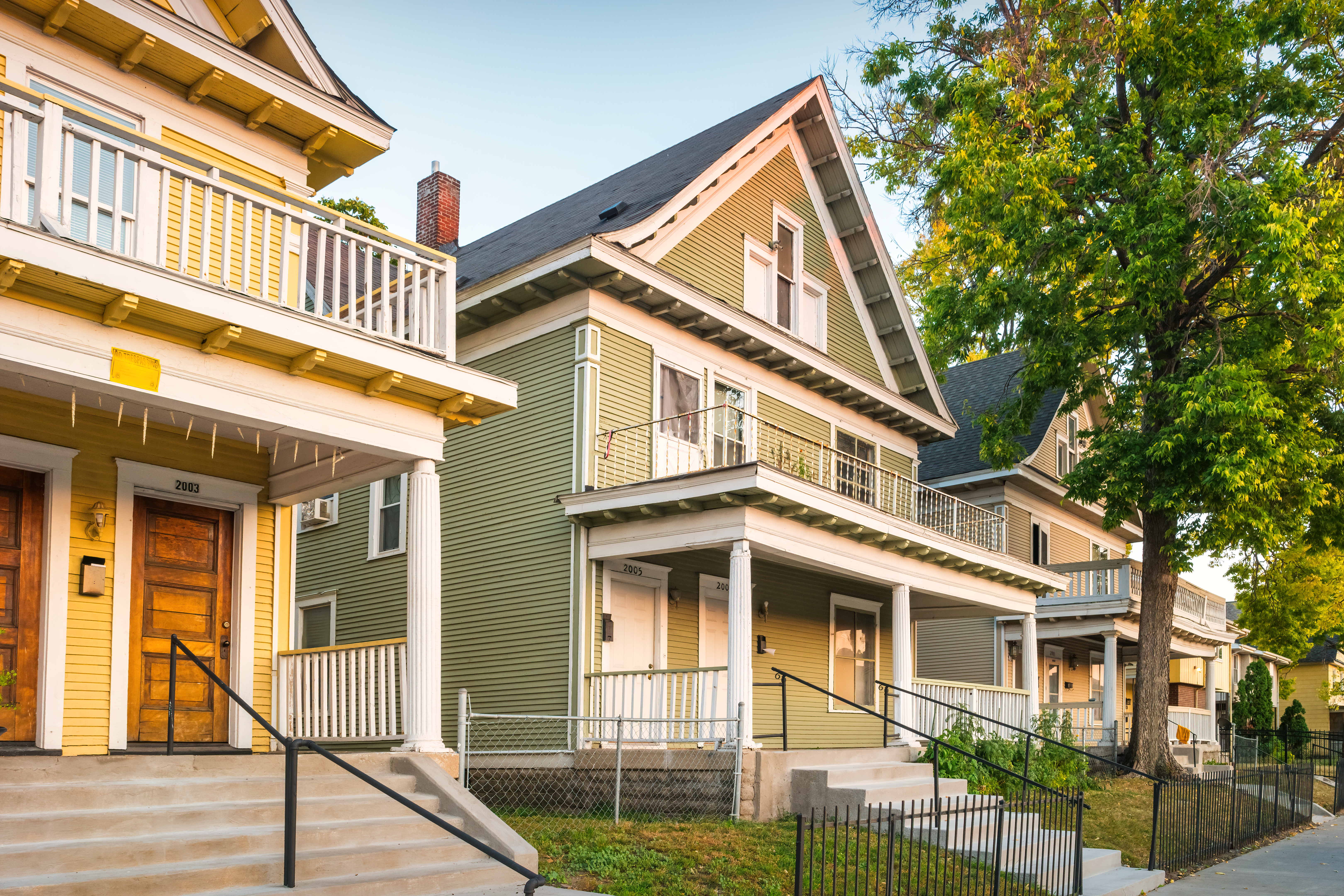
Few things elevate your outdoor space like a landscape architect can. Learn about how much a landscape architect costs and what affects your total.
The average draftsperson cost to hire is $1,724, with homeowners paying between $818 and $2,697 on average, depending on project type, size, and complexity


The cost to hire a draftsperson depends on project size, type, and complexity.
Draftsperson costs cover the creation of technical drawings for renovations, additions, or new builds.
Home remodel blueprints start at $1,000, but new construction blueprints can push costs to $6,000 or more.
Add-ons like 3D renderings, permit-ready plans, or extra revisions will increase your final bill.
Choosing a qualified pro helps ensure your plans are accurate, complete, and ready for permits or construction.
This article was created using automation technology and thoroughly fact-checked and edited by an Angi Editor in accordance with our AI policy.
The cost to hire a draftsperson averages $1,724, with homeowners spending between $300 and $5,000 for drafting services. Rates vary based on project type, size, and complexity, with hourly fees from $75 to $150 or per-square-foot pricing from $1 to $3. Accurate plans help streamline permits and construction. Let’s explore what impacts draftsperson cost to hire, break down different service types, and help you plan your project with confidence.
Understanding what impacts the cost to hire a draftsperson can help you budget more accurately and avoid surprises. Let’s look at the main factors, including service type, project size, material choices, labor, and more.
Drafting services come in several forms, each affecting the draftsperson cost to hire. Residential drafting is common for home remodels, additions, or new builds, while commercial projects require more detailed plans.
Specialized services include interior design drawings, as-built plans (which document existing structures), and 3D renderings for visualization. Permit drawings are necessary for code compliance and approvals. Homeowners may need different types depending on their project goals. For example, a new addition calls for remodel/addition drawings, while a kitchen renovation benefits from interior design plans.
| Drafting Service Type | Cost Range | Description |
|---|---|---|
| New construction | $2,000–$6,000 | Full set of plans for new buildings |
| Commercial | $2,500–$8,000 | Drawings for offices, retail, or multi-unit buildings |
| Home addition/remodel | $1,000–$3,500 | Plans for home remodels or additions |
| Interior design | $2,100–$15,250 | Layouts for kitchens, baths, or living spaces |
| Permit drawings | $1,000–$3,000 | Plans specifically for code and permit submission |
| As-built plans | $700–$2,000 | Documentation of existing conditions |
| 3D renderings | $300–$800 | Visual representations for presentations or approvals |
The size of your project—measured in square footage, number of rooms, or stories—has a direct impact on the draftsperson cost to hire. Larger or more complex spaces require more time and detail. A small bathroom update costs less than drafting plans for a two-story addition or a new custom home. The more detailed the scope, the higher the fee. Expect to pay $0.35 to $1 per square foot for stock or semi-customized plans and from $1 to $10 per square foot for custom plans.
| Project Size | Example Scope | Average Cost |
|---|---|---|
| Single Room | Bathroom or kitchen remodel | $500–$1,200 |
| Multi-Room | Basement finish, 2–3 rooms | $1,200–$2,500 |
| Whole House | Full remodel or new build | $2,500–$4,000+ |
Material choices add complexity to drafting, especially when you opt for high-end or custom features. Plans that specify unique cabinetry, specialty windows, or luxury finishes require more time and technical detail. If your project involves custom millwork or imported finishes, expect a higher draftsperson cost to hire due to the extra design time involved.
A draftsperson may work independently, as part of a firm, or as architectural technologists. A draftsperson's cost to hire depends on their experience, certifications, and project complexity. Regional differences also play a role, with higher rates in large cities.
Hourly billing works well for consultations or minor changes, while per-project and per-square-foot pricing suit larger or well-defined projects. More experienced draftspersons or those with technical certifications may charge at the higher end of these ranges.
| Billing Method | Average Rate | Use Case |
|---|---|---|
| Hourly | $75–$150 per hour | Small projects, consultations |
| Per square foot | $1–$3 per sq. ft. | Larger or whole-house projects |
| Per project | $1,000–$4,000+ total | Defined scope, remodels, or new builds |
If not included in their base rate, a drafterperson may also have fees for preparation costs, such as initial consultations, site visits, and detailed measurements. If you lack existing architectural plans, the draftsperson may charge for as-built surveys. Travel fees apply if the site is remote. Expect to pay $100 to $300 for consultations or site assessments.
Several other elements can affect your final draftsperson cost to hire:
Fees for removing or updating old plans, especially if you’re modifying existing structures.
Post-construction updates or as-built revisions, charged at hourly or flat rates.
Permit application and documentation costs, which may be bundled or billed separately.
Coordination with engineers, surveyors, or other professionals, sometimes billed as extra.
Charges for multiple rounds of revisions or design changes.
Add-ons like 3D renderings, digital file formats, expedited service, or extra printed copies.
Plans for decorative or specialty features, such as custom millwork or built-ins, which require detailed drafting.
Each of these factors can increase the overall price, so clarify what’s included before you sign a contract.
After your initial plans are complete, you might encounter ongoing costs. These can include plan updates, operating fees, repairs, and insurance considerations.
Plan maintenance includes updating or revising plans after the original project. This may be necessary if you request design changes, local codes are updated, or you want to remodel in the future. Minor updates cost $200 to $500, while major revisions can reach $2,000 or more. Some draftspersons charge a fee for storing your digital plans for easy access down the line.
If you renovate again or add to your home, you may need to modify your original plans. Fees for resubmitting plans for permits or adapting them to regulatory changes can range from $150 to $400. Some professionals charge for maintaining access to digital files or using proprietary drafting software.
Occasionally, errors or omissions in the original plans require correction. Fixing these issues, or making changes required by inspectors or contractors, can cost $100 to $500 per site visit or revision. If a draftsperson needs to revisit the property, travel fees may also apply.
Draftspersons include professional liability insurance in their fees, which protects against design errors or omissions. It’s wise to confirm your draftsperson’s insurance coverage before hiring. If your plans are not code-compliant, your homeowner’s insurance could be affected, especially if faulty plans contribute to a claim.
You might wonder about the cost difference between using DIY drafting software and hiring a professional. DIY software can cost $50 to $500, while professional drafting services range from $1,000 to $4,000 or more. While DIY saves on labor, it requires skill in technical drawing, code knowledge, and software proficiency.
You’ll need a computer, drafting software, measuring tools for DIY drafting, and expertise in drawing blueprints. Time investment is significant—expect to spend many hours learning software and creating accurate plans. Mistakes can lead to permit rejection, construction delays, or costly fixes.
For very simple projects, like a basic deck or shed, DIY can work if you’re detail-oriented. For anything involving structural changes, permits, or resale value, we recommend hiring a local drafting pro to ensure safety and compliance.
For example, a homeowner who drafts their own plans for a simple patio may save $1,000, but risks rejection at the permit office if the drawings aren’t up to code. Conversely, hiring a pro for a home addition ensures the plans are accepted and construction goes smoothly, saving time and stress in the long run.
Add-ons can enhance your plans but will increase your total draftsperson cost to hire:
3D renderings or visualizations: $300 to $1,200 per drawing
Coordination with engineers or consultants: $150 to $400 per professional involved
Expedited or rush service: 10% to 30% surcharge for tight deadlines
Additional plan sets or digital copies: $25 to $100 per copy or file
Permit application assistance: $150 to $400
Specialty drawings (cabinetry, landscaping, lighting): $200 to $1,000
Each add-on should be discussed upfront to avoid surprises and ensure your budget covers all your needs.
Streamline your draftsperson costs with these budgeting tips:
Get multiple quotes from local draftspersons to find the best value.
Provide clear project requirements and minimize blueprint or design changes.
Use standard materials and finishes to reduce drafting complexity.
Bundle multiple drafting needs into one project.
Request digital files to avoid printing costs.
Prepare site measurements or existing plans yourself if possible.
Choose a billing method that fits your project scope.
Home is the most important place on earth, which is why Angi has helped more than 150 million homeowners transform their houses into homes they adore. To help homeowners with their next project, Angi provides readers with the most accurate cost data and upholds strict editorial standards. We extensively research project costs to develop the pricing data you see, so you can make the best decisions for you and your home. We rely on reputable sources, including the U.S. Bureau of Labor Statistics, academic journals, market studies, and interviews with industry experts—all to ensure our prices reflect real-world projects.
Want to help us improve our cost data? Send us a recent project quote to [email protected]. Quotes and personal information will not be shared publicly.
From average costs to expert advice, get all the answers you need to get your job done.

Few things elevate your outdoor space like a landscape architect can. Learn about how much a landscape architect costs and what affects your total.

Need to know how much blueprints cost for your new construction project? Use this comprehensive cost guide to get an accurate estimate for your build.

Wondering how much hiring an architect cost? Discover architect prices, cost factors, and money-saving tips to help you plan your home project with confidence.

Discover the cost of converting a duplex to a single-family home. Learn average prices, key factors, and tips to plan your conversion project with confidence.

The U.S. has a wide variety of popular house styles. Learn more about common architectural styles and which is best suited to your needs.

Learn about Prairie School or prairie-style architecture, including what defines the design and how to incorporate the style into your own home.